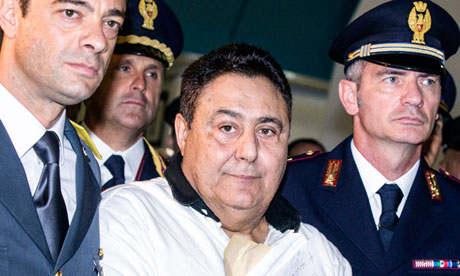By Ellis Cortez
Impunity Watch Reporter, South America
SANTIAGO, Chile – A senior United Nations investigator has urged Chile’s government to stop using anti-terrorism law against the country’s Mapuche Indians who are fighting to recover their ancestral land.

The Mapuche Indians make up 9% of the Chilean population. They live in rural communities and suffer from high levels of poverty.
Ben Emmerson, the U.N.’s special investigator on Human Rights and Counter-Terrorism, said a long-running dispute over land rights could boil over into serious violence and disorder at any moment unless urgent action is taken. He says the situation is “volatile” in the southern regions of Araucania and Bio Bio, where most Mapuche live.
Chile’s anti-terrorism law, drafted by General Augusto Pinochet in 1984 is one of the harshest in the Chilean statute book. It doubles the sentences for some offenses and allows for the conviction of defendants on the basis of testimony from anonymous witnesses.
Human rights groups say the law is abusive because it allows for suspects to be held in isolation without charge and for the use of secret witnesses and telephone taps.
“The anti-terrorist legislation has been used in a way that discriminates against the Mapuche. It has been applied in a confusing and arbitrary way, which has turned into a real injustice that has impaired the right to a fair trial, and it has been perceived as stigmatizing and delegitimizing of the Mapuche territorial demands and protests,” Emmerson said.
Mapuche prisoners have staged lengthy hunger strikes to protest the anti-terror law and what they regard as excessive police violence during raids on Mapuche communities. Other forms of protest have ranged from marches, occupation of public buildings, and setting up roads blocks.
“The preliminary conclusions of the U.N. official go along with what we’ve been saying: that there’s no terrorism and that this is a disproportionate law that only creates more tensions,” said Aucan Huilcaman, a Mapuche leader. “If Chile really wants to show its democratic side it must recognize the Mapuche people,” Huilcaman added.
There was no immediate response from Chile’s government.
The Mapuche conflict has been going on for years in the south, with sporadic outbursts of violence. In January of this year, a group of attackers set fire to a house belonging to an elderly couple whose family had a history of poor relations with the Mapuche neighbors. The couple died in the blaze. Their deaths shocked Chileans and raised questions about the inability of President Sebastian Pinera’s government to meet the demands of Chile’s largest indigenous group.
Emmerson said Chile’s government should come up with a strategy to solve the dispute, speed up the return of land and recognize the country’s largest indigenous community under the constitution.
For more information please see:
ABC News – UN: Chile Should Solve Land Dispute With Mapuche – 31 July 2013
CNN Chile – Relator de la ONU sobre Ley Antiterrorista: “Ha sido aplicada en una forma que es ilógica, discriminatoria y contraproducente” – 30 July 2013
El Universal – Relator de ONU advierte a Chile riesgo del conflicto mapuche – 30 July 2013
BBC – UN criticises Chile for using terror law on Mapuche – 30 July 2013
Fox News – UN official says Chile should stop using anti-terrorism law against Mapuche in land dispute – 30 July 2013


